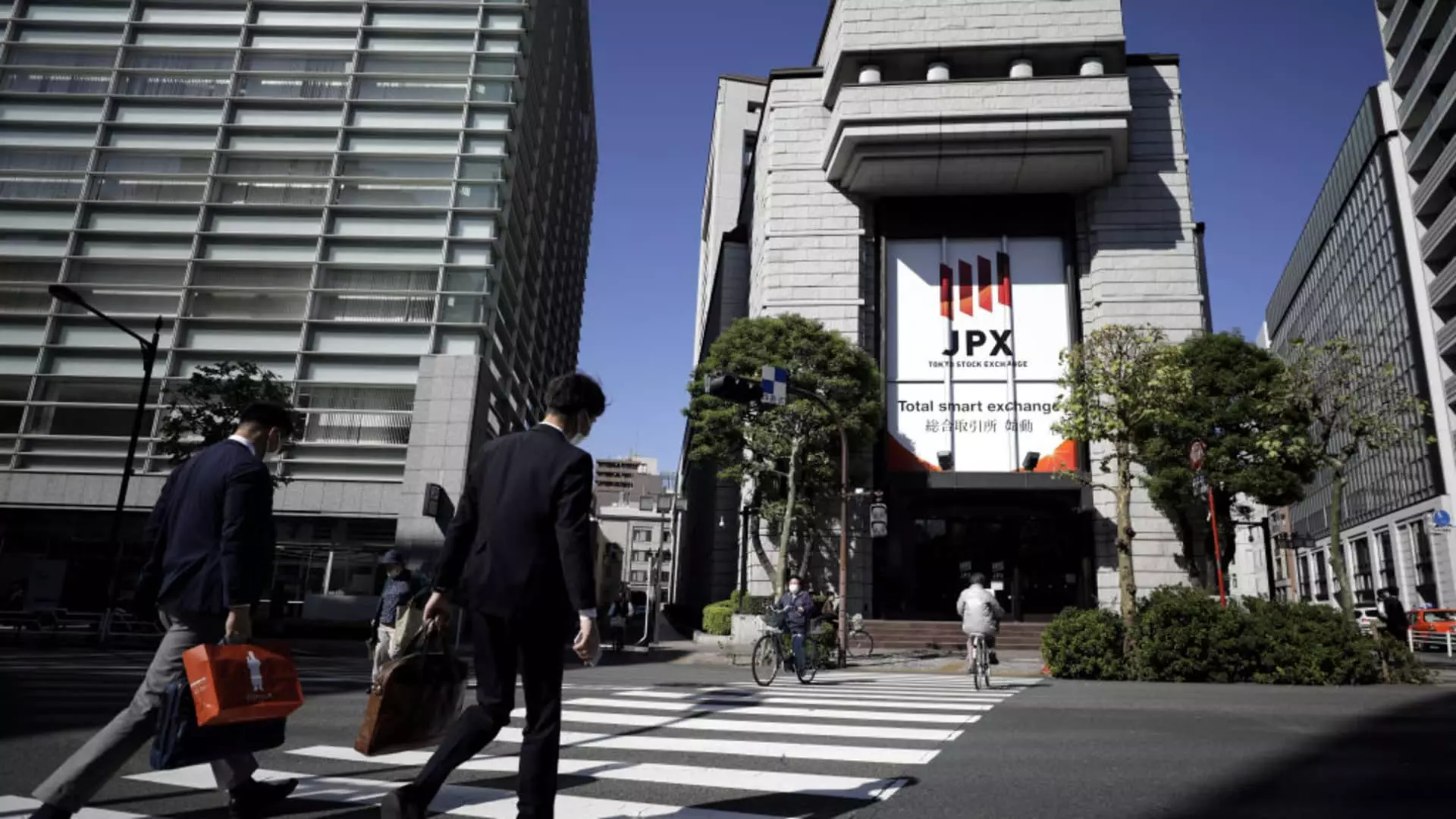On Thursday, Japanese stocks spearheaded an upward movement in Asian financial markets, driven primarily by a moderate positive shift on Wall Street amid escalating geopolitical tensions in the Middle East. The Nikkei 225 index experienced an impressive opening surge of 2.57%, while the broader Topix index followed closely, posting a gain of 2%. This robust performance is reflective of Japan’s unique economic landscape, which often responds dynamically to both domestic and international economic indicators.
The Japanese yen saw significant depreciation, sliding to a concerning low of 146.54 against the U.S. dollar overnight. This slide comes at a time when fiscal policymakers are closely monitoring economic conditions. Newly appointed Prime Minister Shigeru Ishiba, addressing the media after a meeting with Bank of Japan Governor Kazuo Ueda, articulated that prevailing economic circumstances do not justify another increase in interest rates. This sentiment suggests a cautious approach by Japan’s leaders as they navigate the complexities of a turbulent economic environment.
Anticipation of Economic Data Releases
Looking ahead, investors are bracing themselves for a series of critical data releases that could impact market sentiment. Notably, Australia’s Judo Bank Composite PMI for September registered at 49.6, a decline from August’s 51.7, indicating a contraction as it falls below the neutral 50-mark. Service sector indicators mirrored this trend, slipping to 50.5 from the prior month’s 52.5. Additionally, the Australian Bureau of Statistics is poised to publish trade statistics for August, with economists predicting a decrease in surplus to AU$5.5 billion from the AU$6.01 billion recorded in July.
Market Dynamics Across Asia
China’s mainland markets remain inactive due to a week-long holiday, while South Korea also observes a national holiday, further setting the stage for a quiet trading environment in the region. In contrast, Australia’s S&P/ASX 200 managed a modest increase of 0.25%, highlighting resilient investor confidence amidst a backdrop of global uncertainties. Meanwhile, Hong Kong’s Hang Seng index futures displayed slight volatility, reflecting investor caution after a significant rally that saw the index soar more than 6% previously, reaching a 22-month peak.
In the United States, market performance echoed similar themes of cautious optimism, with all three major indexes closing marginally above the flatline. The S&P 500 nudged upward by 0.01% to finish at 5,709.54, while the Dow Jones Industrial Average added approximately 39 points to close at 42,196.52. The Nasdaq Composite showed a slight gain of 0.08%, concluding the session at 17,925.12. These trends underline a global financial ecosystem that remains interconnected and reactive to shifting geopolitical and economic currents.
As Asian markets respond to a myriad of influences ranging from domestic policy to international crises, there exists a resilient optimism among investors driven by data releases and government strategies aimed at fostering stable economic growth. The coming weeks will be crucial to assessing how these dynamics unfold further.


Leave a Reply